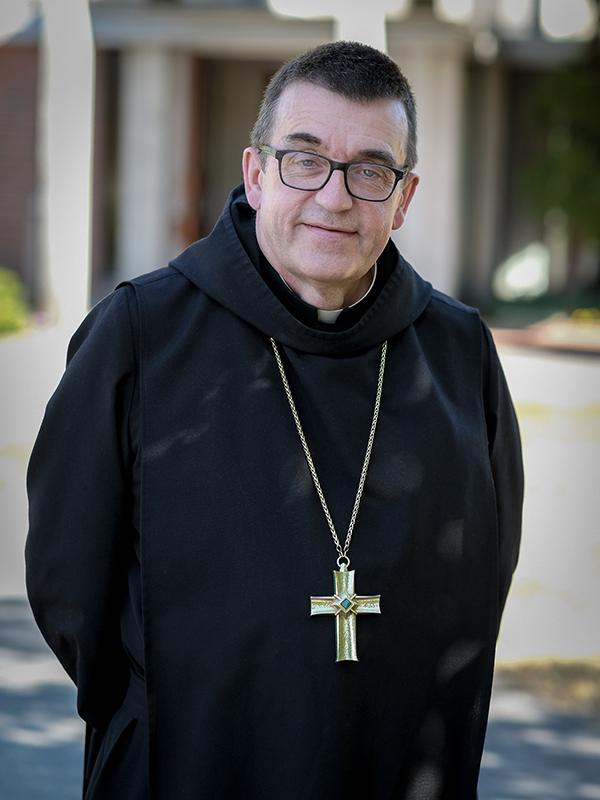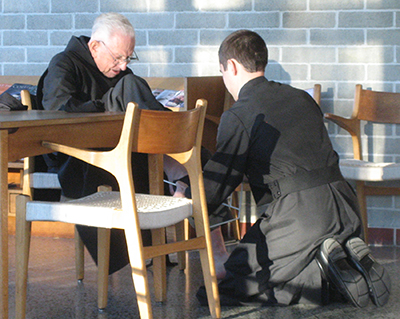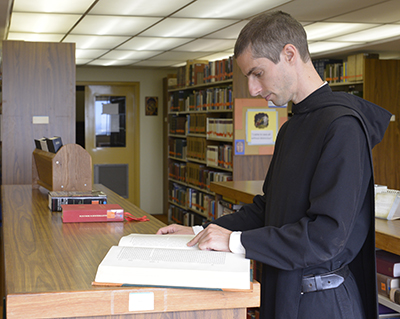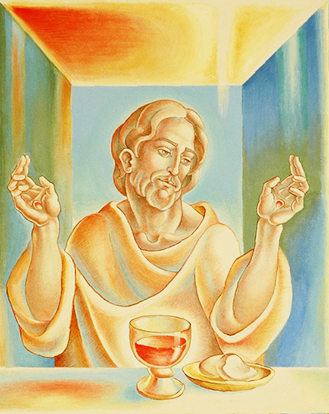Our Charism
Westminster Abbey is a monastery of Benedictine monks, brothers and priests. All Christians are called to love and serve God, to make God the first priority of their lives, to imitate Christ. This is especially true for Benedictines, who are searching for God by delighting in praising him in public worship, in the honest labour of their hands and in attentiveness to the fraternal life lived out according to the Rule of St. Benedict. In essence, the charism of Benedictine life is simple: to worship God, to practise true Christian charity, to work and to study. A balanced life!
Liturgical Life
For the Benedictine, there is no community life without the liturgical life. The annual liturgical cycle of worship which enables the monk to imitate the life Jesus Christ, perfect both his personal life of prayer and his fraternal life in community. He wants to live the “today” of God’s grace to the full, today! In his common public worship, the monk with his confreres becomes a sign of the Church at prayer. By so doing he offers the Church and the World the highest kind of service to God possible this side of Eden.
Community Life
Benedictine life is lived in community. This community is born of God, called to share in God’s own community, three persons in one God. In the monastic community the monk finds support, encouragement and the good example so necessary to live the challenging life to which God has called him.
With Christ as their head and model, with the Holy Spirit binding them into one family, monks strive to love one another and to see Christ in all, especially the poor, the sick, and the guests who are never wanting in a monastery.
Abbot Alban Riley, osb

(2022 – Present)
Abbot
“Let him that has been appointed Abbot always bear in mind what a burden he has received, and to Whom he will have to give and account of his stewardship; and let him know that it beseems him more to profit his brethren than to preside over them. He must, therefore, be learned in the law of God, that he may know whence to bring forth new things and old; he must be chaste, sober, merciful, ever preferring mercy to justice, that he himself may obtain mercy. Let him hate sin, and love the brethren.” (Rule of St. Benedict, Chapter 64).
As Christ makes the Father present so the Abbot makes Christ present in the monastery to the community: as the love of the Father is seen in the life and mission of Jesus so the grace of the unity, mission and peace of the monastery is fostered through the person and office of the Abbot.
St. Benedict’s Rule centers everything on Christ.
The head of the monastery is referred to as the Abbot “since he is considered to represent the person of Christ”(Rule of St. Benedict, Chapter 2).
Benedictine Community
Community is a gift but it is also a task. We receive it as a gift in the Eucharist. We give it away in the daily work of service to each other. Few find living alone comfortable. Benedictines often work and recreate together. Even when they work at a particular job, they participate in the collective activity of the community. A Benedictine is called to be prayerful, conscientious, flexible, and patient.
As we are all made in the image of God, each of our identities is discovered in our relations. We are all called to live the Trinitarian Life “to be a gift to the other in a communion of persons.” (St. John Paul II) To the extent that we “prefer nothing to the Love of Christ” will be the extent to which we realize the Trinitarian Life and allow Christ’s Light to shine through, with and in us.


Study
Study comprises a quiet commitment on the part of the monk in his search for the truth and wisdom. He takes responsibility for his own formation on the journey of life, through reading, writing and praying over what he has studied. The Scriptures, the great fathers of monasticism and the whole hagiographical life of the Church are of great interest to him since they enable him strive after those heights of doctrine and virtue which St. Benedict spoke about in the last chapter of his Rule.


